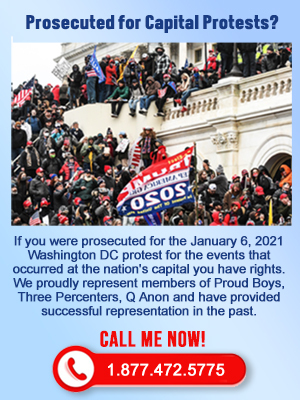Computer & internet fraud refers to any form of fraud that is facilitated using an electronic communication network such as the internet. Fraud, in turn, is defined in federal law by 42 CFR 455.2, which refers to “an intentional deception or misrepresentation” by any individual which is intended to result in unauthorized benefit or material gain. The definition encompasses both federal and state laws against fraud.
Computer & Internet Fraud Laws
Although many states have existing laws against computer and internet fraud, it is important to understand that most acts of fraud committed on the internet will, by their nature, constitute a federal crime. This is because the infrastructure by which online fraud takes place is distributed throughout the United States and most acts of fraud will inherently cross state borders. Acts of fraud which occur exclusively within one state jurisdiction may be prosecuted under the relevant state laws.
Computer & Internet Fraud Crimes & Charges
Computer and internet fraud laws are intended to protect individuals from having their assets, personal property, or personal data compromised by individuals on the internet. There are many different forms of online fraud which, in addition to being prosecuted as internet fraud on the federal level, may also be prosecuted as acts of wire fraud, mail fraud, or even terrorism. According to 18 USC § 1030, some examples include:
- Intentionally accessing any computer or any computer network without authorization in order to obtain information such as financial records, information from any agency of the United States government, or information from any protected computing device.
- Intentionally access any computing device used, or used exclusively, for the business of the United States government, whether or not information was removed or altered while accessing that device.
- Knowingly causing damage to a protected computer through the transmission of such agents as a computer program, information, code, or other types of agents which then cause damage.
- Unknowingly or recklessly causing damage to a protected computer through any unauthorized access.
Computer & Internet Fraud Punishment
Computer and internet fraud punishment can include imprisonment of up to twenty years, with imprisonment of up to ten years recommended in cases where the individual does not have a past criminal history regarding computers. In addition, fines may be imposed based upon the value of the damage done to any protected computer systems as well as the value of any information that was stolen, compromised, or damaged. The individual may be required to forfeit access to the internet for some period of time or serve supervised probation.
Computer & Internet Fraud Sentencing Guidelines
Computer and internet fraud sentencing guidelines recognize distinctions based upon the value of data compromised or stolen, with more serious penalties possible when the value exceeds $5,000. Cases in which the unauthorized computer activity caused or may have caused serious damage to the interests of the United States, including damage to national security, may meet with imprisonment up to twenty years as well as other charges. Cases in which the unauthorized access caused serious bodily harm to any individual may also qualify for a longer federal prison sentence.
Computer & Internet Fraud Statute of Limitations
Under the expectations outlined in federal statute, 18 USC 3282, no individual may be prosecuted for a noncapital offense unless the indictment is found or information is instituted within five years, or 60 months, of the commission of the offense.
Computer & Internet Fraud Cases
Because of the nature of the communications networks used to commit computer and internet fraud, it is very easy for such cases to become federal crimes or have federal elements. There have been numerous high-profile computer security cases in the past decade, many of them allegedly perpetrated by members of underground hacking “gangs” or “collectives.”
- Hackers associated with the international “hacktivist” organization Anonymous launched distributed denial of service (DDoS) attacks on servers belonging to major credit card companies throughout 2012, allegedly in protest of the companies’ decision to withdraw support for donation collection for certain websites (SlashGear)
- The Better Business Bureau and other organizations have noted an uptick in federal computer and internet fraud cases where anonymous third-parties claim to be agents of the federal government or infect victims’ computers with software purporting to be part of a federal investigation. The software then collects “fines” from the victim. (BBB)
Computer & Internet Fraud Quick Links & References
- Legal Information Institute Overview of Computer & Internet Fraud Laws
- Computer Crime Overview & Explanations at the U.S. Department of Justice
- Additional Discussion on National/International Internet Fraud & Crime Laws
- Comprehensive Overview of Different Types of Internet Fraud and Crime Online
- Examples of Computer Fraud That Individuals Are Typically Charged With
Internet Fraud Laws by State
Alabama, Alaska, Arizona, Arkansas, California, Colorado, Connecticut, Delaware, Florida, Georgia, Hawaii, Idaho, Illinois, Indiana, Iowa, Kansas, Kentucky, Louisiana, Maine, Maryland, Massachusetts, Michigan, Minnesota, Mississippi, Missouri, Montana, Nebraska, Nevada, New Hampshire, New Jersey, New Mexico, New York, North Carolina, North Dakota, Ohio, Oklahoma, Oregon, Pennsylvania, Rhode Island, South Carolina, South Dakota, Tennessee, Texas, Utah, Vermont, Virginia, Washington, West Virginia, Wisconsin, Wyoming
